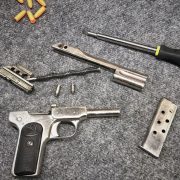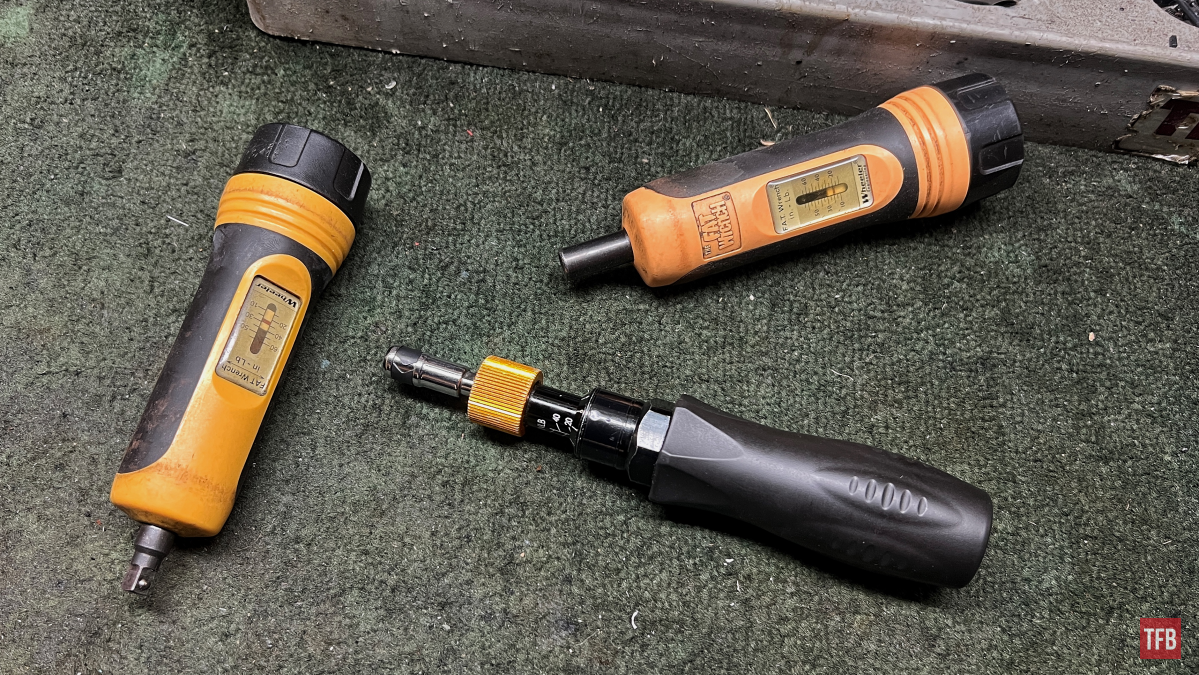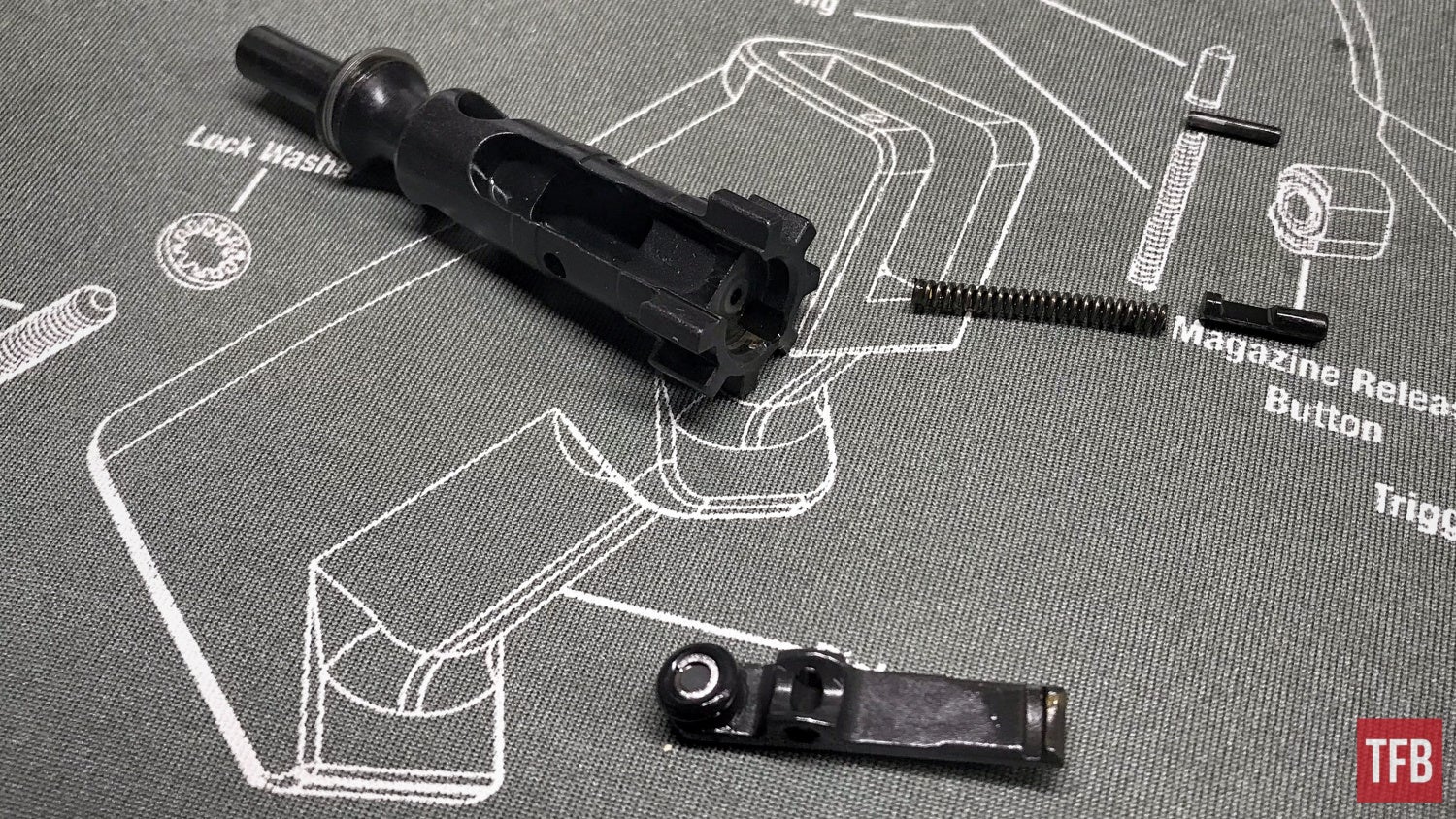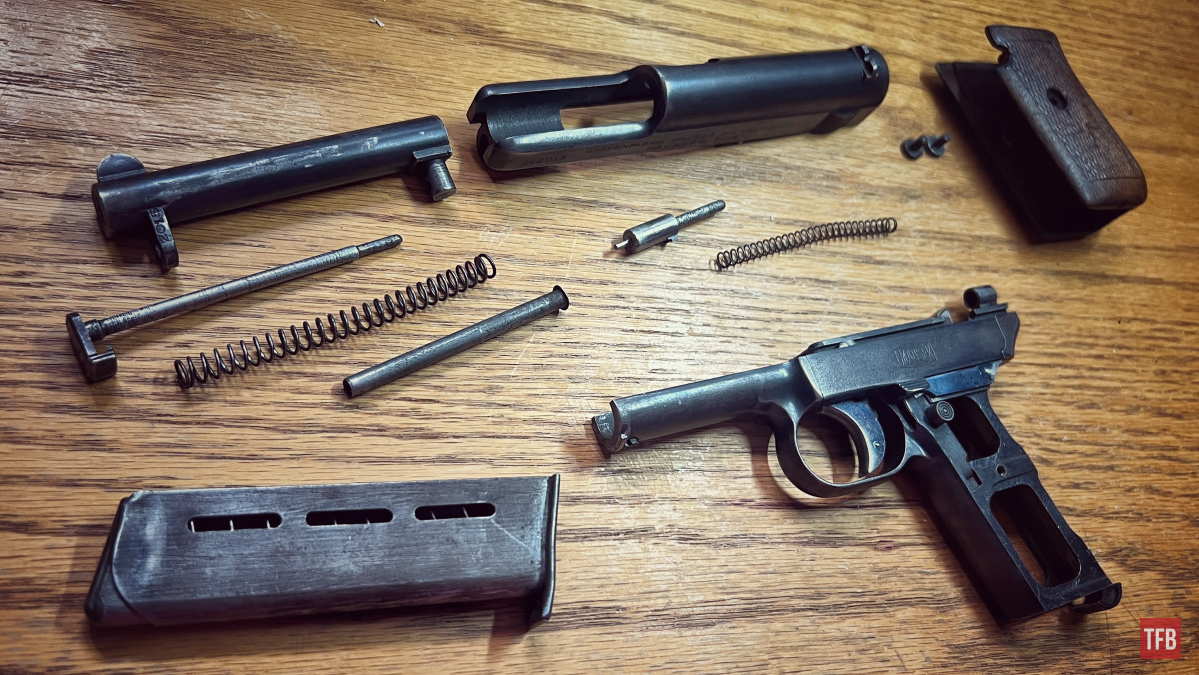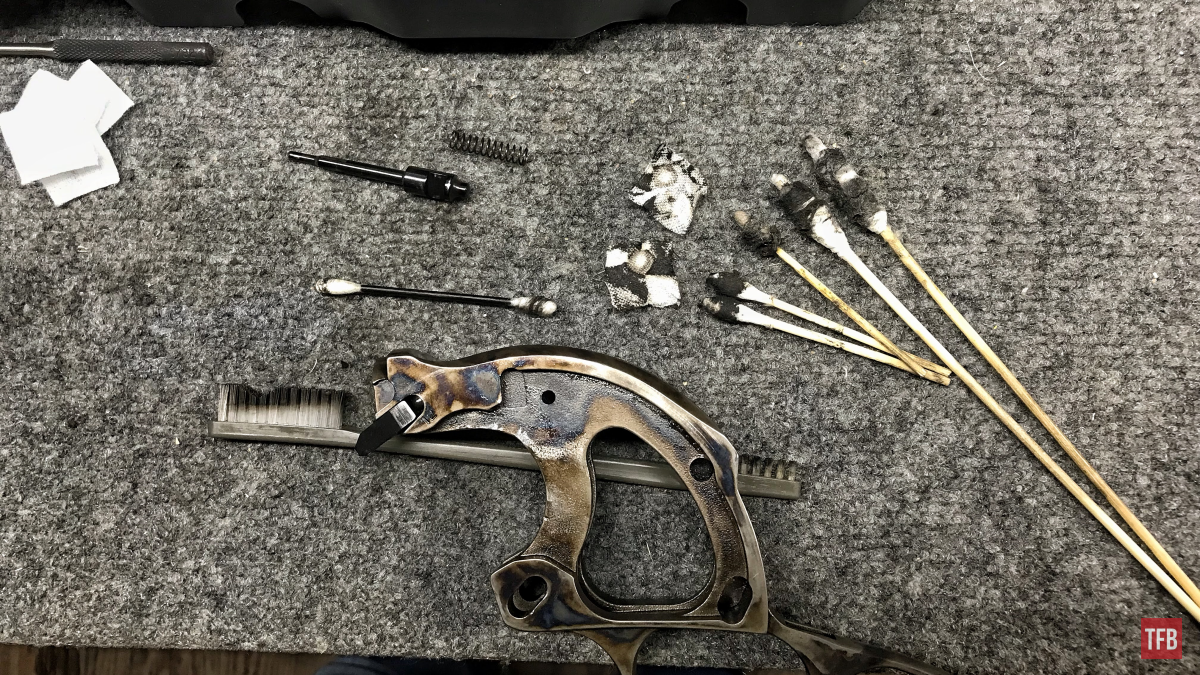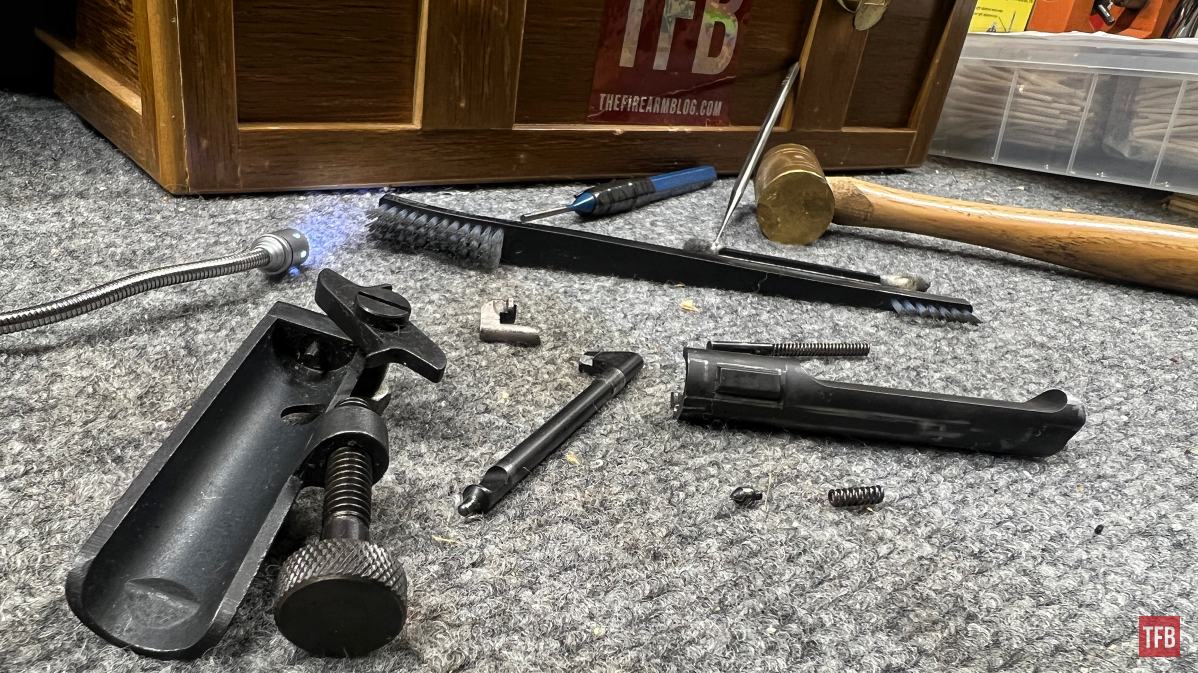Welcome everyone to the TFB Armorer’s Bench! As mentioned in the little blurb below, this series will focus on a lot of home armorer and gunsmith activities. In this article, I decided to roll with a more relaxed article and touch on a topic that rewinds everything quite a bit. This topic actually comes courtesy of fellow TFB writer and AllOutdoor editor Adam S. I had never really considered doing an article like this because it feels like a lifetime ago when I think back to my earliest efforts in the trade. Nonetheless, I agree it may shed some light. In no particular order, let’s dive right into 3 things I wish I knew before gunsmithing.
TFB Armorer’s Bench: Wish I Knew Before Gunsmithing
Here, we at TFB hope to inform, entertain, and even inspire any would-be gunsmith or armorer out there. Ideally, with the information I provide and with the help of our sponsors, you can have some useful knowledge pertaining to the conservation and improvement of firearms technology while at the same time sharing experiences and teaching each other new tips and tricks along the way in the comments. Digging deep into what it is to be an armorer or gunsmith has significance but what is important is what those people do to show they’ve earned that title. I am happy to share my experiences and knowledge and hope it is informative!
Make your personal safety a priority:
- Practice proper gun safety. Always make sure before the firearm hits your bench that it is unloaded and safe to be handled.
- Wear the proper safety equipment. The main one would be safety glasses (decent ones) since parts are often under spring tension and you may work with high RPM tools. Other honorable mentions would be latex gloves or a respirator when working with potentially harmful solvents and oils. Also hearing protection when working with loud machinery or test-firing firearms.
- Modifications, alterations, and customizations will void your firearm’s warranty 9.5 times out of 10. Please take that into consideration before attempting any at-home gunsmithing.
- If you are unsure about proper safety practices, disassembly procedures, or warranty standards, stop, put down the tools, and consult a competent gunsmith.
Number One: The Value of a Torque Wrench
Do not fret, I have limited the tool-related commentary to this first heading. I have probably mentioned it in a tips and tricks article or how to set up a bench or even essential gunsmithing tools. Torque wrenches are invaluable and essential to doing proper work. It is not just a screwdriver. Scope mounts, scope rings, grip screws, buttstock bolts, forend screws, etc all require proper torque to not only keep them in place but to prevent their damage or undoing by over or under-tightening. Use a normal screwdriver all you want. I warn you that it may result in tearing off a screw head in a cheap scope mount and you will have to do some potentially damaging work to get the rest of that screw out. There are many out there but they all do the job and are affordable.
Note: If you are unsure of a part’s proper torque specification, make sure to check the manual and if possible ask the manufacturer. Some things are pretty standard and have general ranges but some things are specific.
Number Two: Not Always Broken
It may seem obvious but it was not always the case for me starting out. I would say personally, that it was one of the unfortunate side effects of attending a literal gunsmith school. You are given all these straightforward reasons and things to look for and once you are “in the wild”, you quickly realize gun problems are not so black and white. Just because a gun does not extract does not mean the extractor is broken. Just because a gun does not cycle does not mean that a spring is bad or the gas system is messed up. Just because you have poor or no ejection does not mean the ejector is missing or snapped off. To be fair, they did explain up front that most of what we would see (definitely true) is that most cases of malfunction are due to poor or neglected maintenance.
Despite things not always being so definite it also does not mean a malfunction is caused by something overly complicated. For example, one thing that comes to mind that dumbfounded me early on was a Remington 870 or Mossberg 500 (I do not remember which) was not fully going into battery and locking up. You could pump all you like but on the forward stroke, the locking block would not fully actuate. Ignoring the obvious safety hazards involved in such an abnormality, the cause was a simple one. I realized the problem only after completely checking EVERYTHING else. The forend/pump nut had been over-tightened to the point where it was pulling the pump forward just enough to not allow it to go those millimeters into battery. Slightly loosen the nut and bingo! Not all malfunctions are complicated. Not all are black and white. Most are simple and often obvious if you take a step back and look at them from a wider lens.
Number Three: Guns Require Maintenance
When I was a kid, my dad taught me guns need to be cleaned. This meant the bore was brushed, patched, and well, clean. After the bore was clean the exterior metal parts were wiped down with oil on a rag and then “stored” whether it be in a soft case, in the closet, or eventually in a cabinet. I believe this is a similar teaching to most gun owners and it has flaws, sure, but it covers the basics. The 22 rifle both my father and I grew up shooting got its first full deep clean probably 30 years after he bought it in a hardware store when he was in his late teens. It had broken parts in it that were held in place by carbon, lead, and fouling. This is the long way of saying that it should have been gone through long ago and not waited for something to go wrong. Like most mechanical tools, guns need routine maintenance. This can be an oil wipe down every six months, a complete teardown after a year, or a field strip and clean after every other range session. Guns are mechanical tools that have literal explosions happen inside them. Take care of them to prevent any harm to your firearm or yourself. It will probably keep it from ending up on my bench or other gunsmiths.
Conclusion: Wish I Knew Before Gunsmithing
It is sort of difficult to look back and really think about what I wish I knew before. One thing that has really stuck with me is that over time you will learn all the little quirks and things to look for. It turns into second nature in a way. These three things may seem simple or obvious but I think they are fair and honest. Hope you folks enjoyed it. Parting question! Is there anything you folks wish you knew before starting a gunsmithing project of your own?
As always, thank you for reading TFB! Be safe out there, have fun while shooting, and we will see you next time for the TFB Armorer’s Bench! Also, let us know what you think in the comments below! We always appreciate your feedback.


